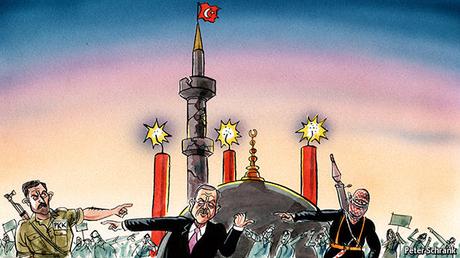
THREE days after a double bombing in Turkey’s capital killed at least 99 people at a peace rally, the prime minister, Ahmed Davutoglu, and a group of government officials laid flowers at the scene of the carnage, carefully cordoned off for the occasion. The low-key ceremony was a pale reflection of the tide of grief and anger that has swept through Turkey since the massacre. At funerals across the country, thousands expressed their anguish. In many cities police blocked large gatherings to honor the victims. Unions called for a two-day strike, and students at several universities boycotted classes to show dissatisfaction with the state of the country.
The attack, perpetrated by two suicide bombers carrying TNT and metal balls to amplify the explosive’s effect, has not been claimed by any organisation. Wildly differing interpretations have taken root in a deeply polarised country. Recep Tayyip Erdogan, the president, acknowledged evidence of a tie to Syria and Islamic State (IS), the presumed source of similar bombings in the past. But he went on to link the attack to his government’s war with Kurdish pro-autonomy fighters, including those of the…

